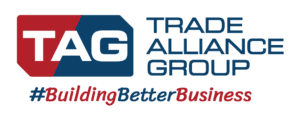Maintaining a steady cash flow is like having a solid foundation for your business.
It’s a topic that may seem mundane, but it’s crucial to your success. So, grab your tools and let’s dive into this article, where we’ll discuss the importance of cash flow and highlight some ways to keep it in check. Take back your time now.
Cash Flow Importance
Maintaining a steady cash flow is like having a solid foundation for your business.
Cashflow is the lifeblood of any business, including yours. It refers to the movement of money into and out of your company, and maintaining positive cashflow is essential for several reasons:
Managing emergencies
Unexpected costs or setbacks can occur in any business. A healthy cash flow provides a safety net to tackle unforeseen circumstances without jeopardising your operations.
Investing in growth
Positive cash flow allows you to invest in equipment, training, marketing, and other strategies that foster business growth. You can seize new opportunities and expand your business with access to funds.
Paying your bills and expenses
Cashflow enables you to cover your day-to-day costs, keep your suppliers happy, and maintain smooth operations.
Improving Your Cash Flow
Now that we understand why cashflow matters, let’s explore some practical tips to help you keep your cashflow in check:
MONITOR YOUR EXPENSES
Regularly review your expenses to identify areas where you can reduce costs or optimize spending. Look for opportunities to negotiate better deals with suppliers or explore alternative options that offer comparable quality at a lower price.
GET PAID
Paid is your contract and payment partner who can help you get back to focusing on life and doing the job you know how to. They understand the issues facing the building and construction industry when it comes to getting paid for your hard work. They can provide digital contracts that allow builders just like you to be paid the same day that the drawdown is due (normally takes banks 2-3 weeks to process).
ACCURATE CASH FLOW PROJECTIONS
Create a realistic cash flow forecast that takes into account your income, expenses, and payment terms. This will help you anticipate any shortfalls or surpluses in advance and make necessary adjustments.





